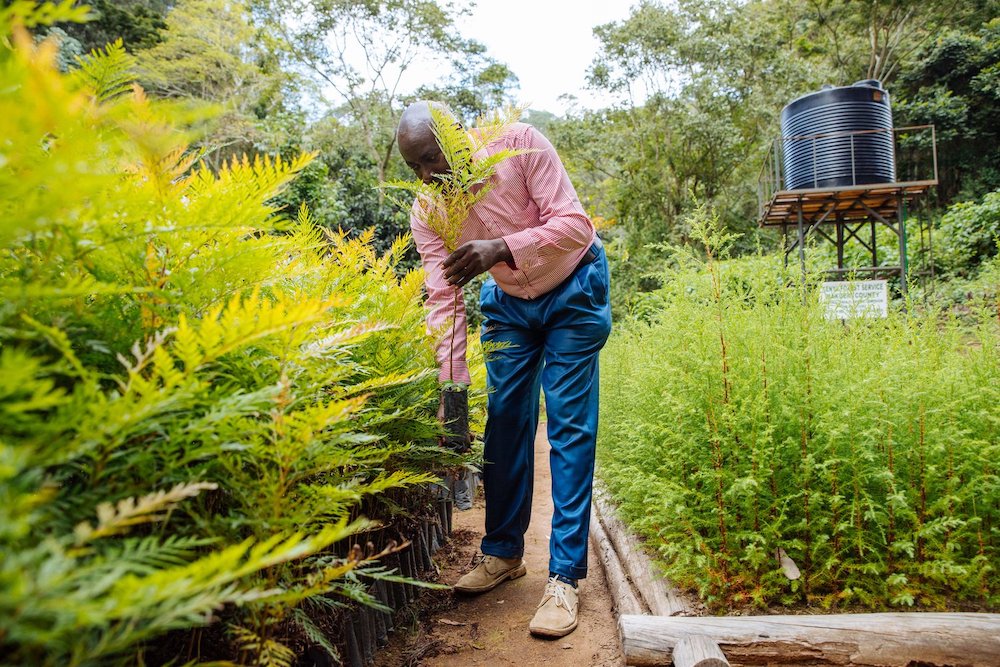ImpactAlpha, April 28 – Root Capital calls them “climate action leaders.” World Resources Institute calls them “regeneration champions.” Pioneering small farmers, agri-businesses and cooperatives are implementing critically needed and highly-localized land regeneration and climate-adaptation techniques. What they lack is access to capital for financial sustainability and scale.
“These businesses in super remote places, with very limited resources, are already doing so much work to invest in climate action,” says Root Capital’s Elizabeth Teague. “They’re innovating so much without access to significant external financing.”
Just 1.7% of climate finance goes to smallholder farmers. Data from Root Capital’s portfolio show that many farmers and farmer organizations are carbon negative.
“They’re teaching regenerative agricultural practices that are critical for us,” said Teague. “If we could get them more money, and more incentives to do that work, they’ll really be able to show the way forward.”
Climate roadmap
Root Capital is 2.5 years and $240 million into its six-year Climate Resilience Roadmap initiative to drive more capital to reforestation projects, regenerative agroforestry farms, and the production of climate-ready crops. Last year it deployed $100 million and piloted five new loan structures aligned to organizations’ climate adaptation needs. One financed solar panels for a macadamia nut processing business in Kenya. Another provided credit to cooperatives to on-lend to their members to make or buy compost.
“We’re designing these loans to allow businesses to invest in new climate action activities,” said Teague.
TerraFund
World Resources Institute is tackling the same problem as Root Capital with its TerraFund grant and loan facility. The fund, a partnership between WRI, One Tree Planted and Realize Impact, funds local, community-based landscape restoration in Africa.
It disbursed $15 million to 100 businesses and nonprofits last year with backing from the Bezos Earth Fund, Meta, the DOEN Foundation, Caterpillar Foundation and others.
“The theory of change is to finance these underinvested communities that are doing fantastic work but don’t have the investment and technical support to scale it,” said WRI’s Venkat Iyer.
TerraFund is looking to deploy an additional $12 million this year. Applications for its current funding window are open until May 5.
Local and low-tech
WRI and Root Capital both underscore the importance of highly-localized climate solutions, while recognizing that such initiatives by nature are difficult to find, much less finance. Teague says it’s encouraging to see more institutional capital interested in climate resilience and restoration, “but it’s trying to come in in large chunks, whereas the capital needed here is small: $50,000 here for a tree nursery, $100,000 there for solar panels.”
Added Will Anderson of WRI: “For this ‘missing middle’, brokering one-to-one transactions is difficult. The transaction costs are high.”
Compounding the problem is the low-tech nature of many of these organizations; business digitalization and fintech have not yet reached them, observed Teague.
Both Root and WRI are trying to bring efficiency and critical mass through initiatives like the Climate Resilience Roadmap and TerraFund. WRI’s scheduled funding windows are helping it build a community and vet projects that could become investable down the line. Last year, it received more than 3,000 applications for 100 funding slots.
“This aggregation model allows projects to maintain their independent work while being part and learning from a larger community of people doing similar work,” said Anderson.
Root Capital is gunning to disburse $105 million in climate finance per year for the next three years. It’s also looking at how to integrate carbon credit platforms “to reward farmers who are providing important carbon benefits but are not yet being rewarded for that work,” said Teague.











